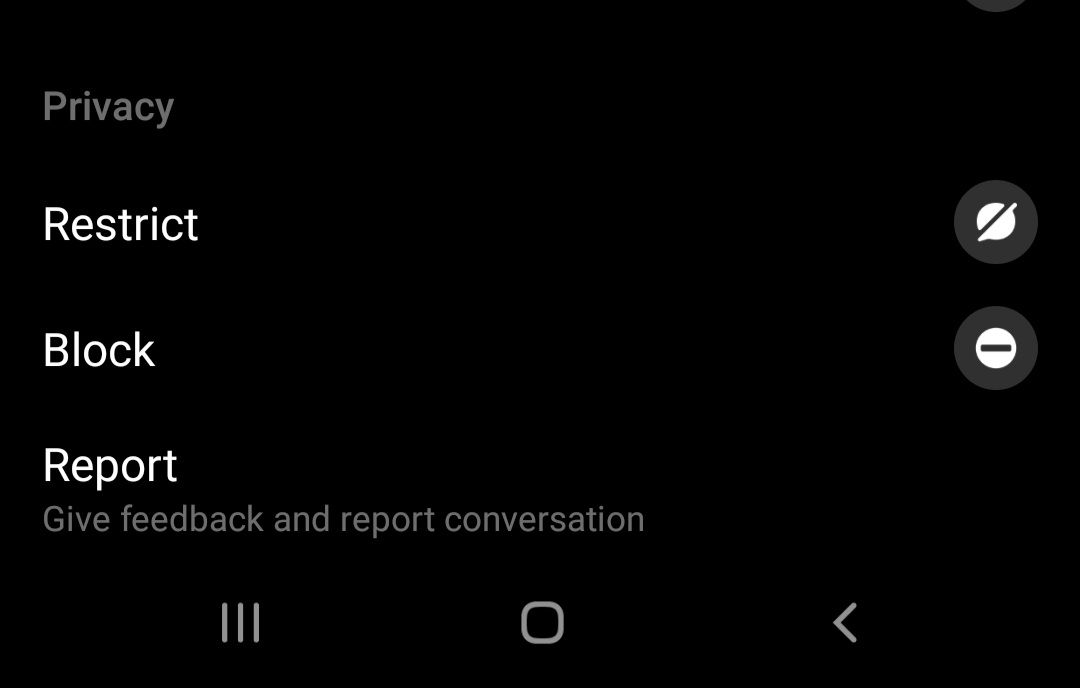Facebook offers its users the best connectivity, trading, and entrepreneurial benefits. With billions of people signed up on this free platform, it has become challenging for users to maintain their privacy.
If you like to remain in touch with only your loved ones and known contacts, consider limiting other people contacting you on Facebook. We discuss the essential tips that can help you stay secure in the long run in this article.
Tips for Limiting People Contacting You on Facebook
Limiting people on Facebook is super easy. Here are some tips for prohibiting people from contacting you on Facebook.
1. Put Privacy on Your Posts
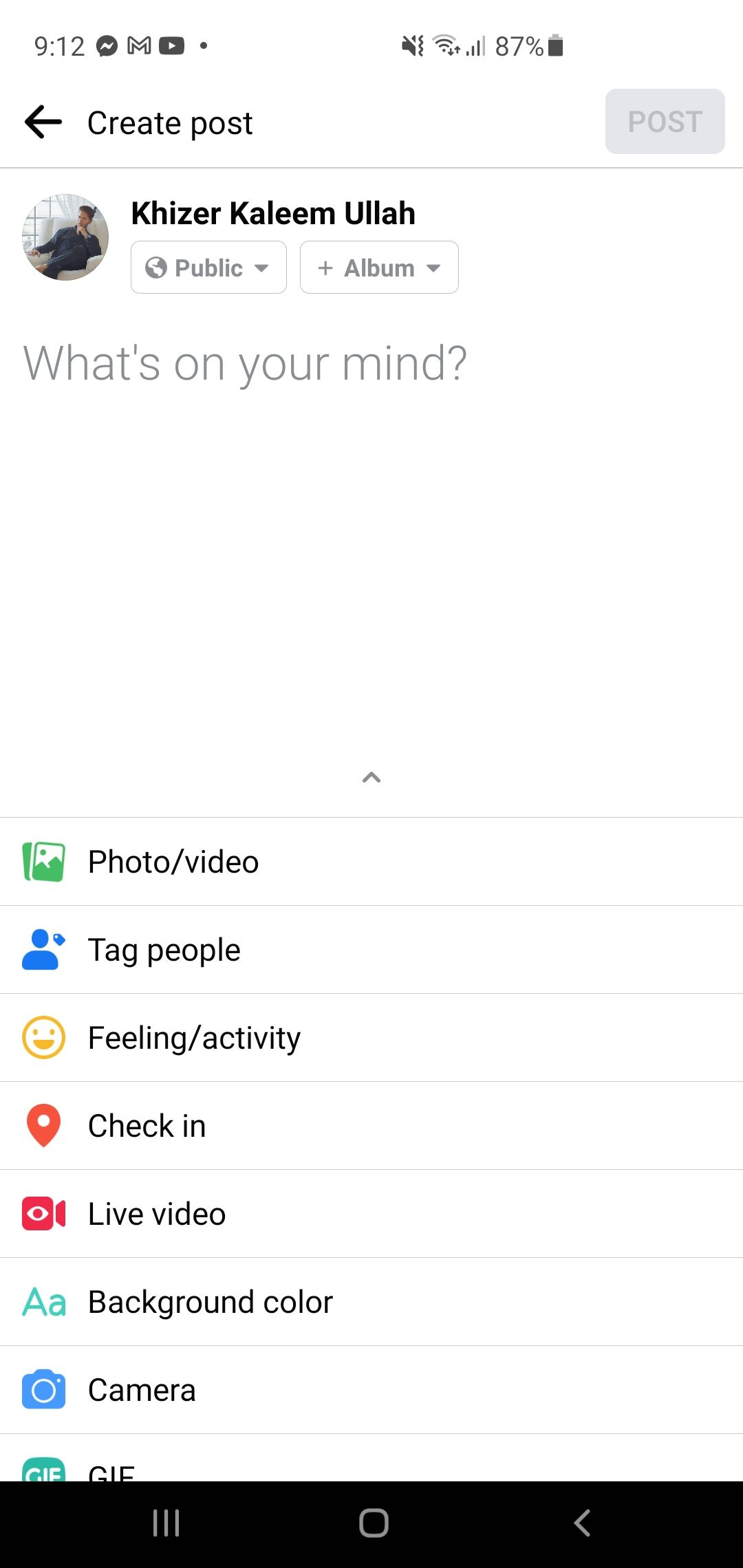
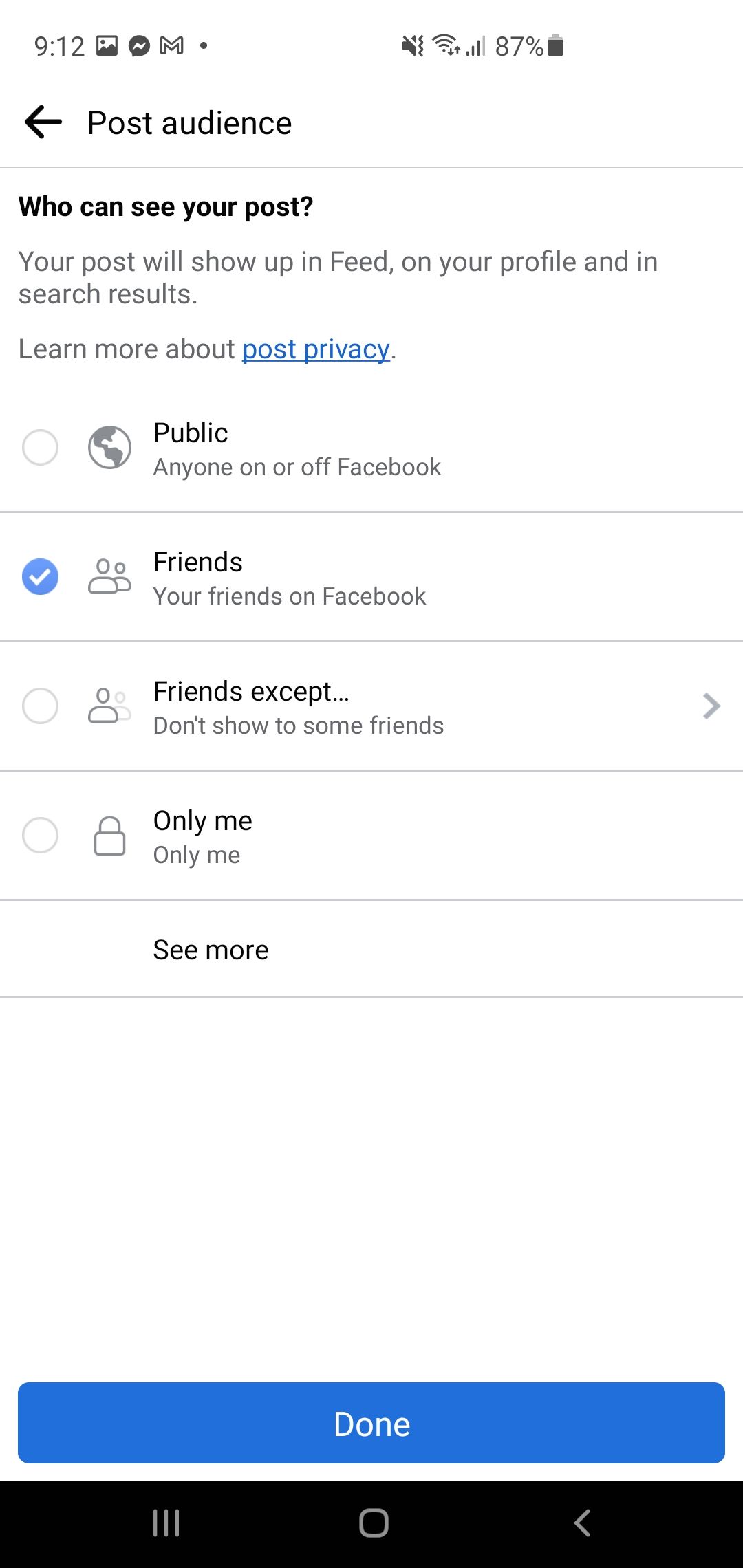
Facebook enthusiasts understand the constant itch to share posts from other pages, photos, and videos. Most people share these posts to showcase their point of view to friends and loved ones.
Putting any post in public gives random and unwanted people access to your profile. The best practice is to change the privacy to Friends or Custom (depending on your comfort level).
Any post on Friends' settings can be seen by anyone added to your Facebook account. Customized settings enable users to share their posts with only selective people.
To do that, choose the post you wish to change the settings of. Tap the privacy option and change settings from Public to Friends or Custom.
The settings are applied until you change them again. When users upload media on Facebook, it also allows them to change their privacy settings. If you want to make your posts shareable, keep them Public.
If you have a business and are trying to get customers through Facebook, we recommend creating a page, as it’s more effective than adding anonymous contacts to the list.
2. Limit People Who Can Search You

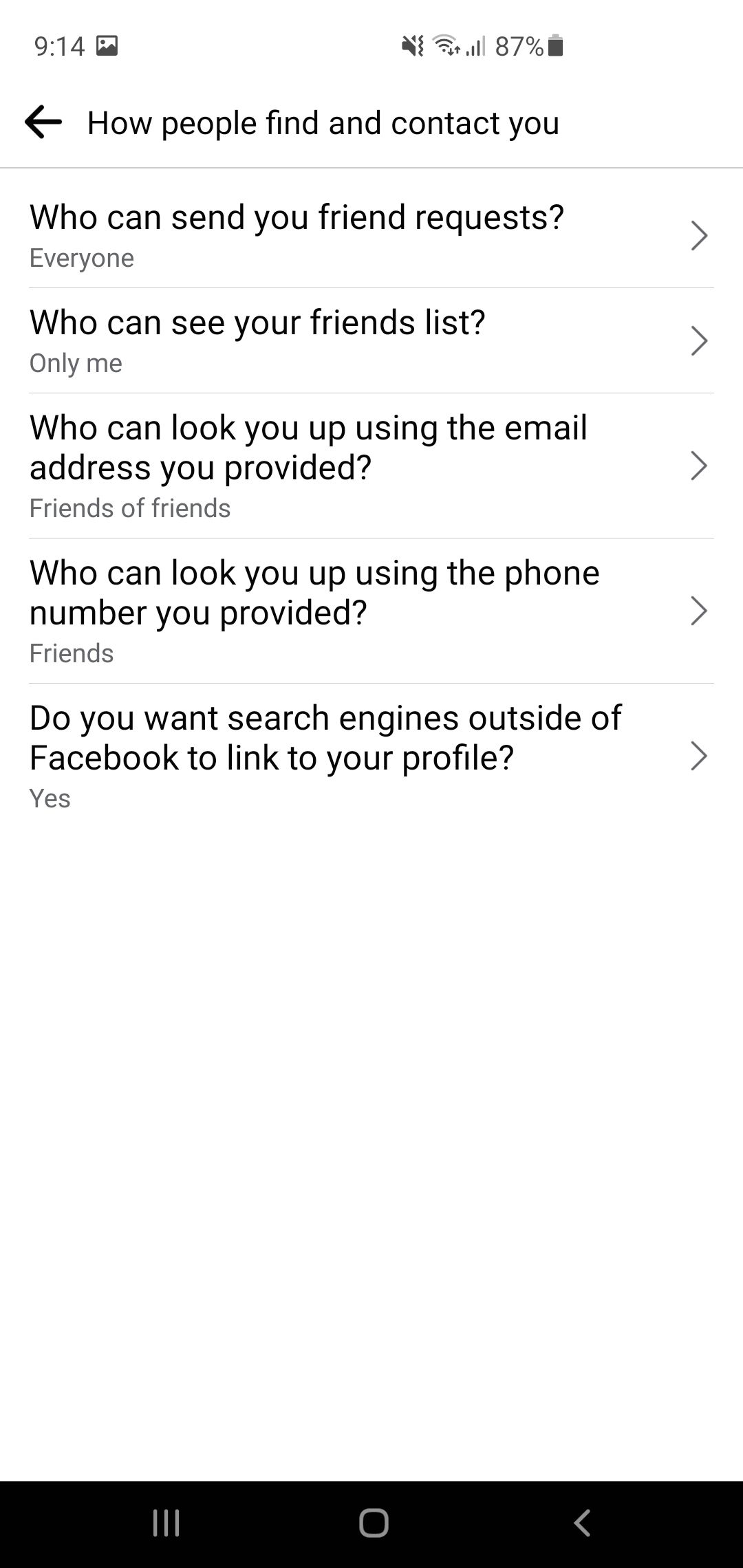
Not everyone needs to know about your personal Facebook profile. Fortunately, this app encourages users to maintain utmost security by limiting the number of people who can search their accounts.
Go to Settings and navigate to Audience and Visibility. Select How people can find and contact you to change the settings accordingly. You can use this feature to avoid spam.
A lot of people may have your phone number, and so your Facebook account might be visible to them in their People you may know section.
Limit them from searching your personal Facebook account by changing the settings. This feature is helpful for people who want to keep their professional and personal lives separate.
If your Instagram and Facebook accounts are linked together, your contacts are automatically synchronized. People who follow you on one app can also find you on the other. Users can keep their Instagram and Facebook separate to limit this contact.
3. Change Your Messaging Privacy
Facebook has made Messenger its main messaging app. It comes with several exciting features and privacy settings that encourage users to maintain their desired privacy levels.
Users can restrict a contact, adding that contact to the Message Requests section without blocking them. You can avoid unwanted contact by limiting as many people as desired. If that doesn't help, there is always an option to block a person on Messenger.
Furthermore, deleting conversations and archiving contacts also play an integral role in maximizing your privacy. Like WhatsApp, Messenger also supports end-to-end encryption, which means your chat is not accessible to anyone.
This feature updates your conversations whenever a contact changes their device, reinstalls Messenger, or resets their phone.
4. Block Messages or Restrict Someone
Is someone irritating to the extent that you don't want them to message you anymore? If so, consider blocking their messages. This feature enables users to only block their messages on Messenger rather than the person itself.
Simply open the chat of the person and tap Block. Choose Block Messages and Calls to stop receiving messages from that specific account. You can unblock them by going through the same steps.
Blocking someone’s messages means they will still be added to your Facebook account, and you can communicate with them through comments, but they won’t be able to text you on Messenger.
Users can find out they have been blocked from sending messages or making calls. To avoid that, try restricting the account instead. That way, they won’t know they have been restricted, and their messages will not reach you anymore.
5. Unfriend or Block a Facebook Account
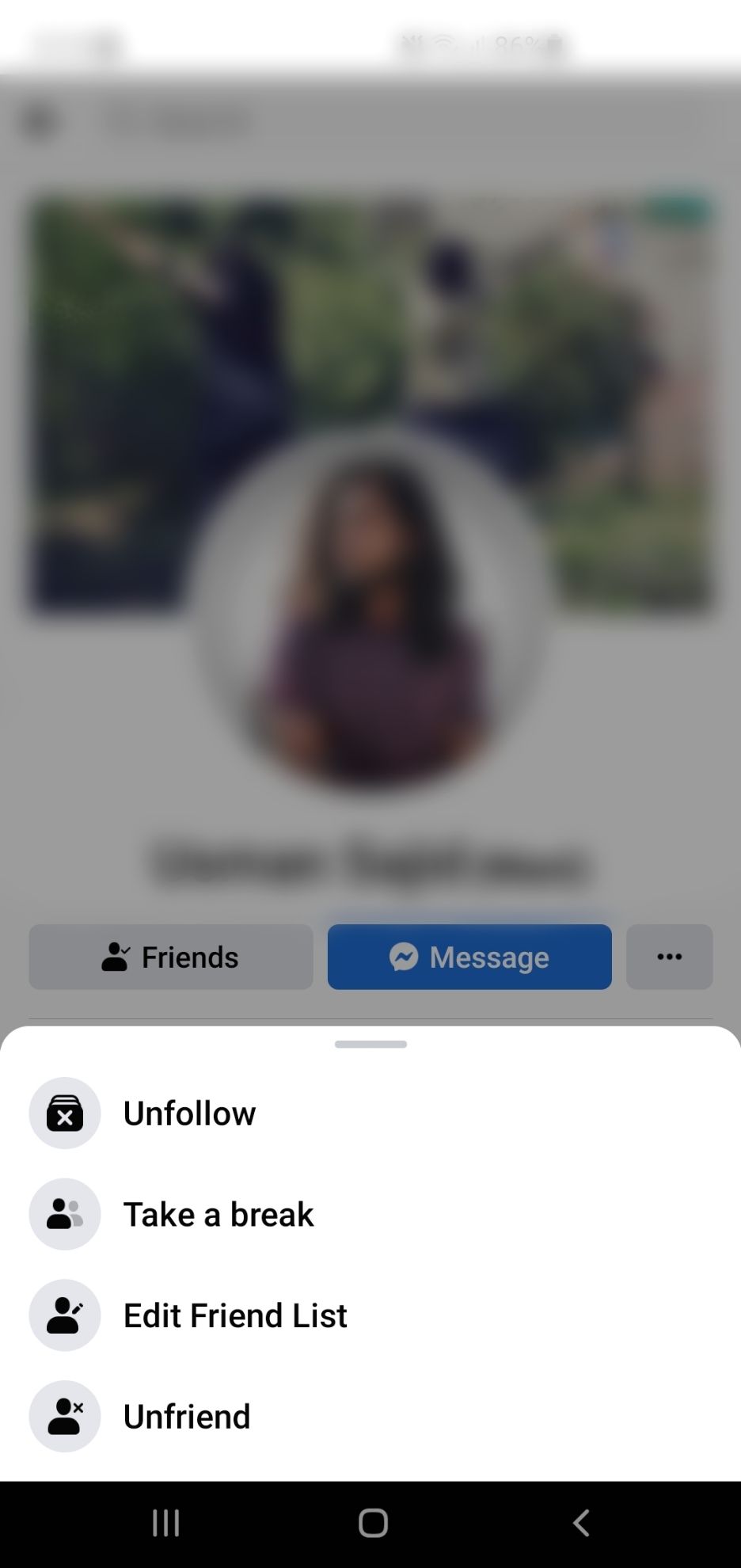
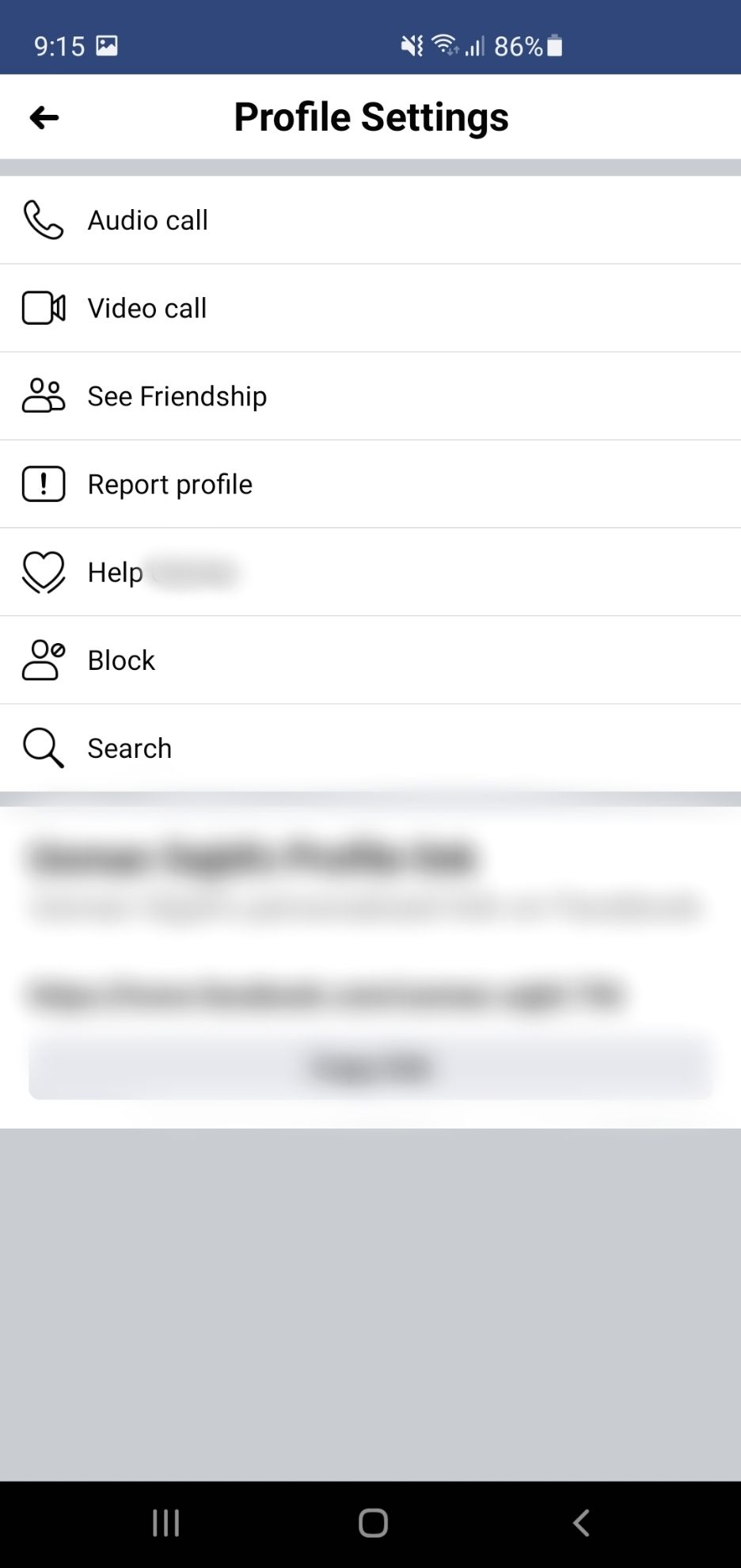
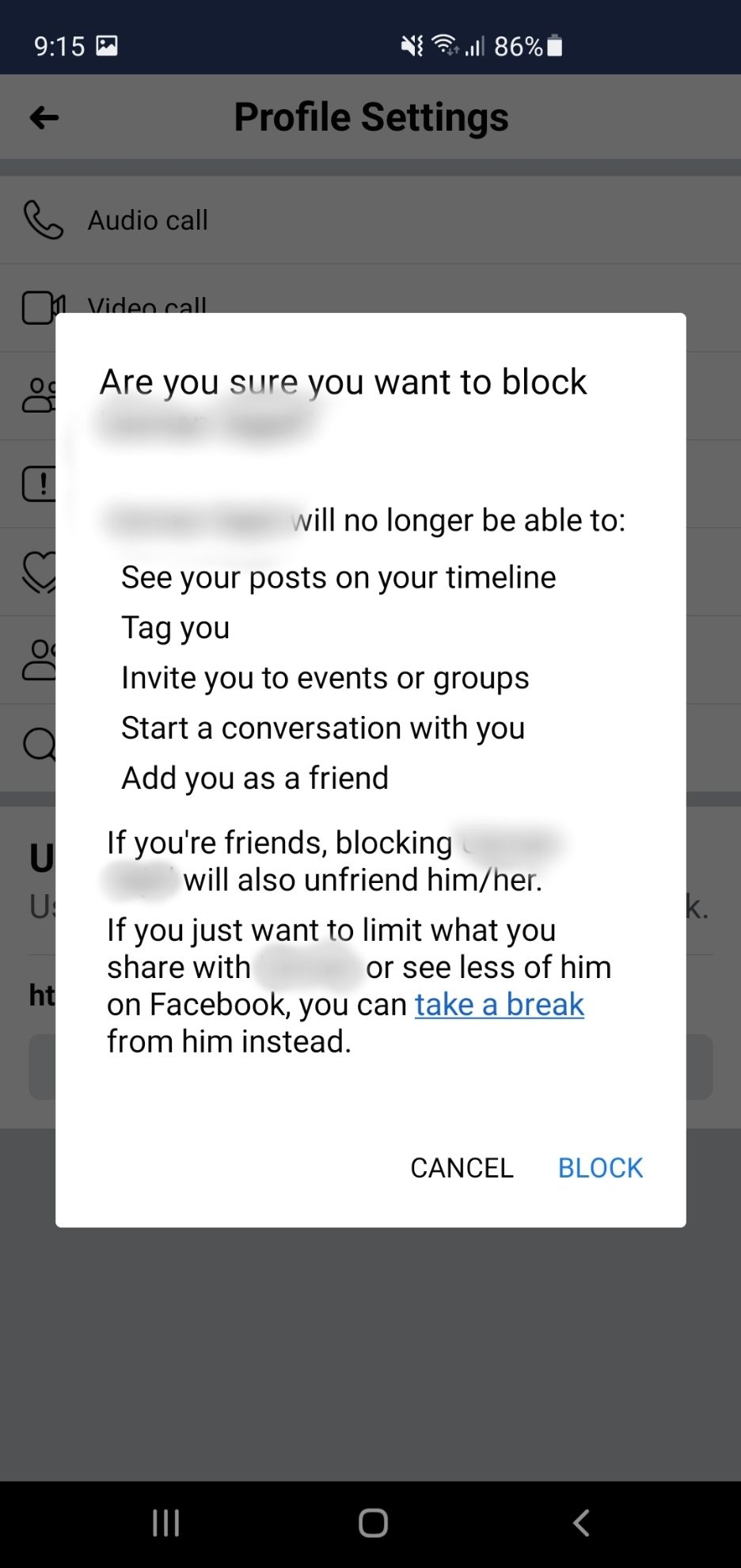
We saved the most extreme measure for the last. If no other privacy option seems to be doing it for you, it’s probably time to get rid of that contact once and for all.
The first option is to unfriend a user. This removes them from your profile and revokes access to any content on the Friends Only mode. A person unfriended from your list can still contact you, send messages, watch public posts, and resend a request.
Consider blocking people on Facebook if the contact becomes unsafe for you. A blocked connection no longer remains on your friend list. Blocking a contact also makes the tags unavailable for you.
After getting blocked, the user is unable to post on your Facebook timeline and tag you in the posts. It also restricts them from finding your account through searching via username, mobile, and email.
A person with more than one account can look you up from the other account if that isn't blocked. The best practice after blocking is limiting your posts and changing their privacy from Public to Friends.
You can also report a Facebook contact depending on their activities on the app. Impersonation, abusive language, and explicit content are why people report and block a user on Facebook.
Make Facebook a Safe Space for Yourself
Facebook is one of the most widely used applications of all time. Some people like to have some personal space and avoid unwanted messages.
We discussed the most popular yet simple ways to limit people from contacting you on Facebook. You can limit post interaction, restrict users, unfriend, and block them.
Multiple safety options make it possible to create a safe space for yourself and your contacts. We recommend reporting any harmful or abusive activity that violates your safety and Facebook policies before blocking that contact.


